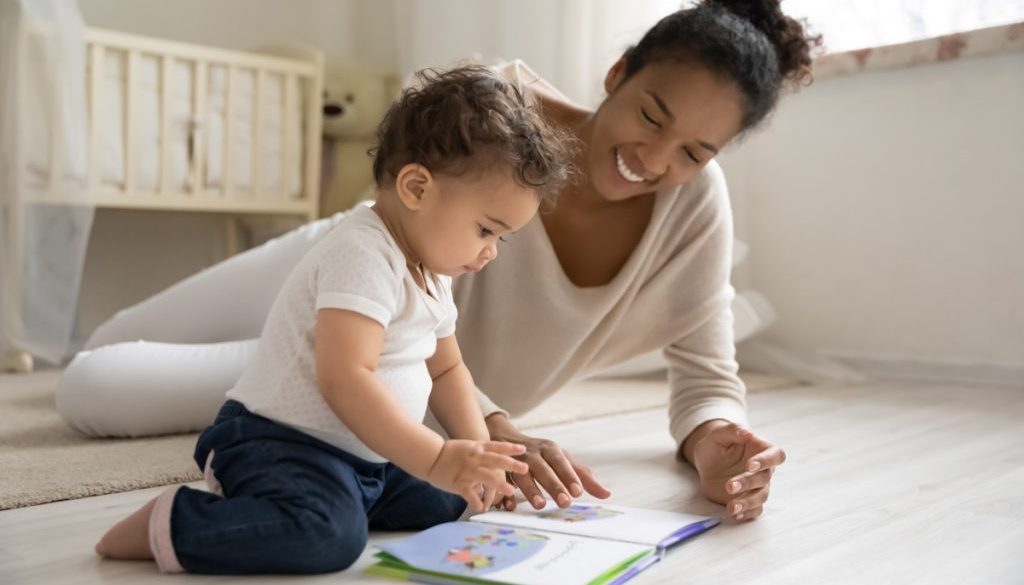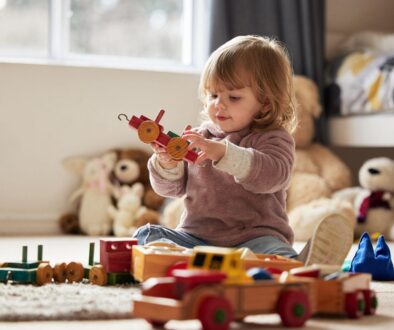Everyday Brain Boosters

Our Forty Carrots Parenting Educators often hear caregivers talking about kindergarten readiness for their little ones. “How can we make sure our child will be ready to start school?” The good news is that most of your child’s brain development happens before they reach kindergarten. The even better news is that everyday interactions with your child is what prepares them best!
At birth, the average baby’s brain is about a quarter of the size of the average adult brain. Amazingly, it doubles in size in the first year. It keeps growing to about 80% of adult size by age 3 and 90% – almost full grown – by age 5.
These early years are the best opportunity for a child’s brain to develop the connections they need to be healthy, capable, successful adults. It is the combination of nurture AND nature that forms the connections needed for important development of things like motivation, self-regulation, problem solving and communication. It’s much harder for these essential brain connections to be formed later in life.
From birth, children have a fundamental desire to engage and communicate with their parents and other adult caregivers. Babies communicate by cooing, smiling and crying. Toddlers are more direct about communicating their needs and wants. The communication of needs is an important opportunity for the caregiver to be responsive to their child. This “serve and return” process is fundamental to the wiring of the brain. Here are a few ideas you can use to boost your child’s brain in everyday ways:
Touch your baby – Touch is important. Babies and young children need to be held and cuddled. Carry your baby around a lot. Every time you gently touch your baby, brain cells are connected. Holding and touching an infant stimulates growth. How you express your love, positively affects your baby’s brain.
Respond to your baby’s needs – Your baby learns to trust others when you respond to his needs. Close and secure relationships early in your baby’s life gives them the confidence to relate to others and explore the world.
Talk to your child – Make eye contact to promote grain growth. TV does not provide the same stimulation as personal contact. The more words your child hears, the more words they will learn. A five-year-old child who knows lots of words is more likely to become a good reader. Toss out the flash cards and just TALK to your child!
Read with your child – It’s never too early to share books with your baby. When your baby is looking at pictures or listening to a story, the brain is hard at work. Use this opportunity to be silly, make funny sounds and voices to stimulate their brain and keep their interest.
Sing with your child – Music and rhythm stimulate the brain! The connections made in the brain when listening to music are the same connections used to solve math problems.
Play with your child – Play is serious work for your child. The more varied play experiences you can share with your child, the more connections are made. Play silly games with your baby; Stick out your tongue, and smile a lot; Tape pictures of babies next to your baby’s changing table; Give baby bright colorful objects to look at (try a lemon or lime, scratch the surface to stimulate their sense of smell too!).
Parents and caregivers who give attention, respond and interact with their child are literally building the child’s brain. That’s why it’s so important to talk, sing, read and play with young children from the day they’re born, to give them opportunities to explore their physical world, and to provide safe, stable and nurturing environments.





